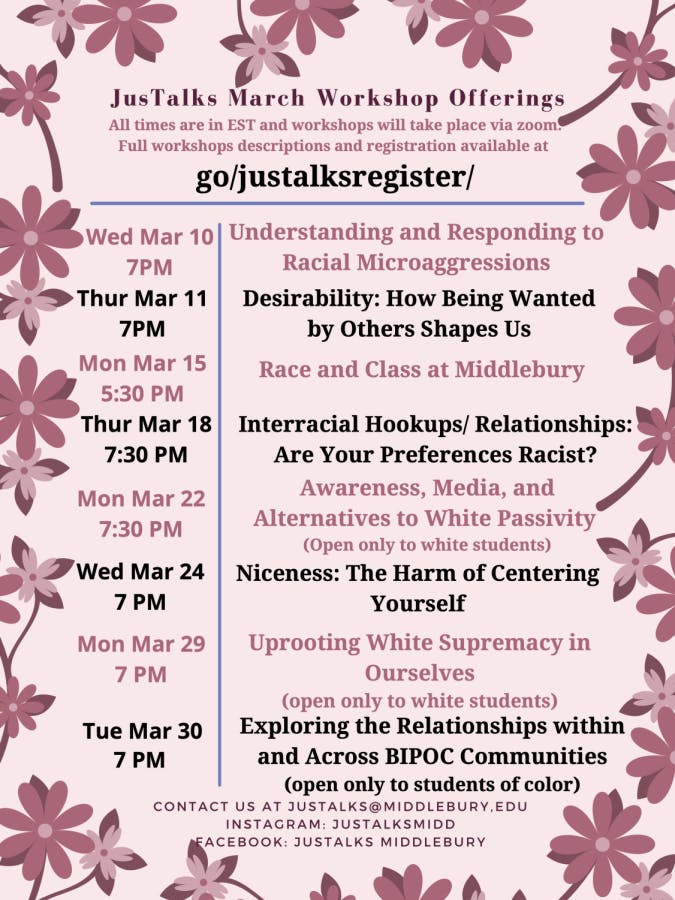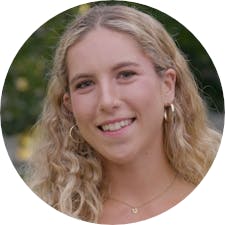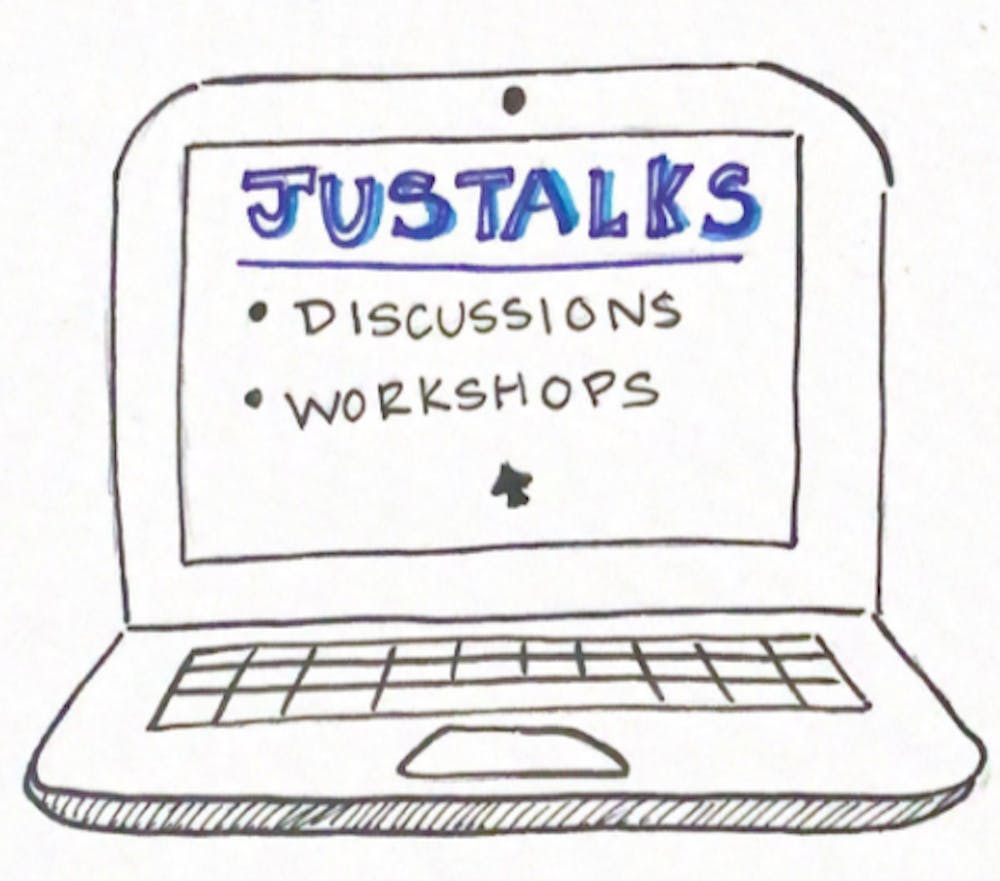The JusTalks program has changed throughout the years — ranging from informal teach-ins to a student orientation program to an all-day workshop conducted at Bread Loaf. Now, JusTalks has taken on a new tack, facilitating voluntary, specialized workshops that occur throughout the year.
This spring, the student-led organization kicked off a series of eight workshops exploring the intersections of prejudice and social life, including “Desirability: How Being Wanted by Others Shapes Us,” “Race and Class at Middlebury,” “Interracial Hookups/Relationships: Are your Preferences Racist?” and more.
“Ultimately, our end goal is that in each of the workshops, people are able to leave with one thing and take one step further in their own learning,” JusTalks program coordinator Jasmin Animas-Tapia ’21 said. “We don’t all need to start from point A and get to point B. The point is just to get to the next letter, to the next step. We hope that these conversations can be part of someone’s own learning and actions, and that they take that into their own circles at Middlebury.”
The JusTalks team creates the workshops collaboratively based on issues prevalent on campus or around the world. The sessions have largely focused on race this year in response to the resurgence of the Black Lives Matter movement throughout last spring and summer, but they hope to expand to more social issues as well.
“JusTalks is created by students and is led by students, and ultimately that is the essence of JusTalks,” Animas-Tapia said. “With JusTalks, we try not to intellectualize everything and make everything academic. This doesn’t happen just in an academic context, [which is] not always accessible. This happens in our everyday lives.”
Workshops build off of and respond to students’ experiences. The JusTalks team created a new workshop, “Race and Class at Middlebury,” during J-Term in response to the inequalities laid bare by the virtual semester. The content of the workshop will seek to guide students in their own reflecting on the importance of race and class on campus and the lack of discussion surrounding both.

In yesterday’s workshop, “Understanding and Responding to Racial Microaggressions,” students practiced responding to real examples of microaggressions that have occurred on Middlebury’s campus. JusTalks Facilitator Olivia Reposa ’24 acknowledged that it may be difficult for participants to have to relive some of these events, but the goal is for it to foster recognition and growth.
The team has two workshops offered only to white students. According to Reposa, the Black Lives Matter protests were the first time that many people realized the impacts of racism, even though these conversations should have been more prevalent long before.
“Having to think about systemic racism isn’t something that, as a white person, you have to do every single day,” Reposa said.
She noted people tend to associate white supremacy with extreme, large-scale examples like the KKK, but the “Uprooting White Supremacy in Ourselves” workshop — also only open to white students — focuses on the small things that happen day to day.
According to Animas-Tapia, programming made for only white students is important because it mirrors the whiteness of Middlebury. She emphasizes that these conversations ought to happen in majority white spaces, as it is not the responsibility of students of color to educate white students.
Animas-Tapia points out that these sessions are not meant to “guilt-trip” or demonize students. Rather, it is important that students approach them with honesty instead of being worried about saying the “wrong” thing.
On the other hand, some workshops will only be offered to students of color. One example is “Exploring the Relationships within and Across BIPOC Communities,” during which facilitators hope to create a space for students of color to share their experiences, build community, and discuss specific dynamics that communities of color face.
Meg Farley ’24 first attended a workshop on interracial friendships in October and has participated in seven more since.
“JusTalks provided the space to have these conversations that I typically don’t have,” Farley said. “JusTalks opened me up to like, ‘Oh, there are people on this campus that like to have these conversations, and there’s a way to have these conversations that’s mutually productive and allows for a lot of learning and, more importantly, unlearning.’”
“Everyone is so thoughtful and in the know and cares, and yet there’s often a point that we can’t get past in certain conversations because they’re just too taboo or they’re too painful or we don’t know how to have them without causing more harm,” Hannah Laga Abram ’23, a JusTalks facilitator, said. “JusTalks is a space where those conversations can happen, and we’re pushed beyond that point, whatever it is. In this moment of major crisis and upheaval, I think this is a really spectacular way to start doing the work of existing as a genuine related human in this time.”
The JusTalks facilitators are still planning workshops throughout the spring. As of now, they will have at least four in April as well. They are also hoping to host workshops for first years and with MiddAthletics, as well as to create new workshops that they have not run before.

Katie Futterman '24 (she/her) is a Managing Editor.
Katie previously served as a News Editor and Staff Writer. This past summer, she was a news intern at Seven Days, and she held the same position at the Addison Independent the prior summer. In her free time, she loves to read, write, and bask in the sun.




